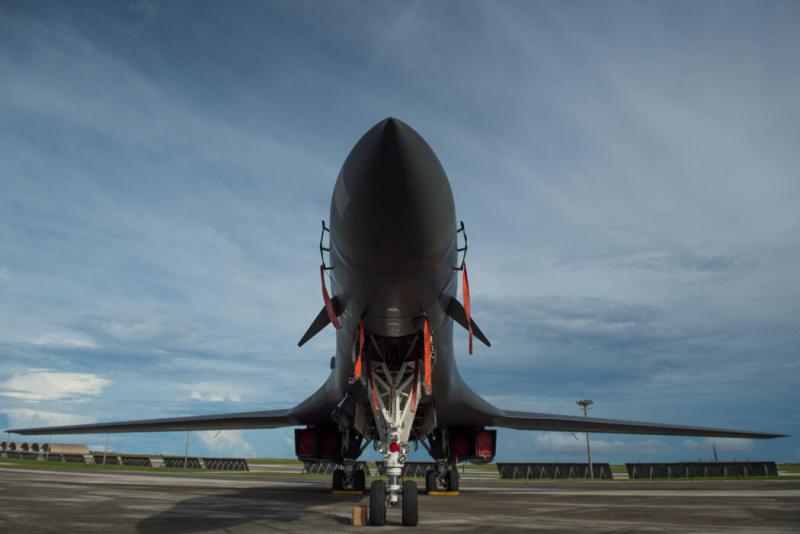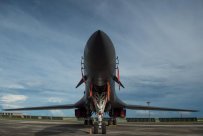
A senior official of the Biden government in the United States warned on Friday that if the nuclear strategy of China and Russia "did not make changes", the United States may be forced to expand its nuclear arsenal.Over the past few decades, the United States has been cutting nuclear arsenal through military reserve control agreements, and these agreements have basically abandoned.
Plane Waldi, senior director of the National Security Council, was the most clear public warning to date, indicating that the United States is preparing to change from a simple nuclear arsenal to a nuclear weapon expansion.Wadi's words are also warning Russian President Putin. If the last important nuclear arms control agreement, the newly reduced strategic weapon treaty did not replace the agreement after February 2026, the United States may respond.
Wadi delivered this speech at the annual meeting of the Military Control Association, which advocates the organization of nuclear weapons, and he confirmed what officials have said in private talks and closed -door Congress for more than a year.They believe that this is the inevitable result of China's rapid expansion nuclear arsenal and Russia's repeated threat to use tactical nuclear weapons in Ukraine.
But this will be an epoch -making change, accompanied by many Americans who think that they have already left behind after the end of the Cold War and the Soviet Union.
15 years ago, President Obama proposed a vision towards the nuclear -free world, and took measures to reduce the role of nuclear weapons in US strategy and defense.Although the nuclear facilities in the United States have been improved and safer, the old weapons have been replaced with more reliable or updated versions, but the United States insisted that it only "modernized" the nuclear arsenal rather than expanding its scale.
At that time, as the Vice President of the Obama administration, President Biden became the spokesperson for this strategy.
At the time, China still adhered to the "minimum nuclear deterrence" policy, which could be traced back to the first nuclear test in China in 1964, and Putin seemed to be very interested in the huge cost -effective arms competition at that time.The situation has changed now.
According to the public estimate of the Pentagon, by 2035, the number of nuclear weapons deployed in China will be comparable to the United States and Russia.Putin has always focused on some unique weapons, including the sea torpedo that can destroy the west coast of the United States across the Pacific Ocean.The United States has been warning in recent months that Russia is implementing a plan to send nuclear bombs into the space track.
Since the invasion of Ukraine in Russia, the United States has not negotiated with Russia on the alternative documents of new strategic weapons treaties.The number of strategic nuclear weapons deployed by the two parties does not exceed 1,550 strategic nuclear weapons. This category refers to nuclear weapons that can be launched from one continents to another.
China has not held in -depth nuclear negotiations with the United States, and it is clearly stated that they are not interested in military control before having a nuclear arsenal that are equivalent to two nuclear powers.(Britain, France, India, Pakistan, Israel, and North Korea all have their own nuclear arsenal, but the number is much less).
Although the Bayeng government did not give up the position of verbally supporting the nuclear -free world, officials acknowledged that the opportunity for a new military reserve control agreement is now slim, and they have to consider new strategies.
Wadi said that the B61-13 nuclear-gravity bomb is an example of such projects that the United States will carry out.This is a nuclear weapon for combating large -scale military targets with reinforcement protection.
At present, the United States is improving rather than expanding nuclear arsenal.But Wadi made it clear that this situation may change.
He said: "If the development trajectory of the opponent's nuclear arsenal does not make changes, we may reach the point where we need to increase the number of deployment on the existing basis in the next few years, and we need to make full preparations. Once we need to make full preparation, once onceThe president can execute immediately. "
Wadi said that the United States is still preparing to seek a military control agreement at any time to reduce the nuclear threat through the nuclear force of "restricting and shaping" the opponent.He pointed out that there have been other diplomatic channels in history to reach such agreements, and said that Russia's war in Ukraine will not become an obstacle to discussion.
But he said that Russia refused to negotiate the follow -up agreement on the new strategic weapon treaty, which was "shaded" for foreign issues.
"At least in the short term, the prospect of strategic military reserve control is dim," he said.
One year ago, at the same meeting, National Security Consultant Jack Shalvin promised to continue to work hard to let China participate in military control negotiations.Since that speech, the United States has always tried to contact China on nuclear security issues. Recently, the two parties have held their first talks in Geneva to discuss whether it is possible to reach an agreement, that is, never use artificial intelligence to control nuclear weapons, and other restrictions.matter.
The Geneva talks are just a preliminary contact between the two parties on this issue. It is unclear whether there will be follow -up talks.Although China has urged the United States to adopt a "not using nuclear weapons first" policy, it has not made substantial contact with the US proposal.
The officials of the Biden government said that a complex factor of the current nuclear environment is that Russia and China may coordinate their nuclear policies, which is also part of the cooperative relationship of "no end" announced by China and Russia.
Wadi said that because it failed to negotiate with Russia and China, this "forced the United States and our close allies and partners to prepare for a nuclear competition world without quantity."
He believes that the modernization of the United States to achieve nuclear arsenal will allow Russia and China to return to the negotiating table, allowing Washington to be in a more favorable position in negotiations.
"We need to persuade our opponents to manage competition than unauthorized competition through military reserve control," he said.



